Jeep Avenger vs Kia Ceed - Differences and prices compared
Costs and Efficiency:
When it comes to price and running costs, the biggest differences usually appear. This is often where you see which car fits your budget better in the long run.
Jeep Avenger has a slight advantage in terms of price – it starts at 21900 £, while the Kia Ceed costs 23500 £. That’s a price difference of around 1535 £.
Fuel consumption also shows a difference: Jeep Avenger manages with 4.90 L and is therefore distinct more efficient than the Kia Ceed with 6 L. The difference is about 1.10 L per 100 km.
Engine and Performance:
Under the bonnet, it becomes clear which model is tuned for sportiness and which one takes the lead when you hit the accelerator.
When it comes to engine power, the Jeep Avenger has a slightly edge – offering 156 HP compared to 140 HP. That’s roughly 16 HP more horsepower.
In acceleration from 0 to 100 km/h, the Jeep Avenger is slight quicker – completing the sprint in 9 s, while the Kia Ceed takes 9.50 s. That’s about 0.50 s faster.
In terms of top speed, the Kia Ceed performs minimal better – reaching 197 km/h, while the Jeep Avenger tops out at 194 km/h. The difference is around 3 km/h.
There’s also a difference in torque: Jeep Avenger pulls hardly perceptible stronger with 260 Nm compared to 253 Nm. That’s about 7 Nm difference.
Space and Everyday Use:
Beyond pure performance, interior space and usability matter most in daily life. This is where you see which car is more practical and versatile.
Seats: offers more seating capacity – vs .
In curb weight, Jeep Avenger is slight lighter – 1180 kg compared to 1298 kg. The difference is around 118 kg.
In terms of boot space, the Kia Ceed offers slight more room – 395 L compared to 380 L. That’s a difference of about 15 L.
In maximum load capacity, the Kia Ceed performs minimal better – up to 1291 L, which is about 14 L more than the Jeep Avenger.
When it comes to payload, Jeep Avenger barely noticeable takes the win – 502 kg compared to 490 kg. That’s a difference of about 12 kg.
Who comes out on top?
Overall, the Jeep Avenger shows itself to be outperforms in nearly all aspects and secures the title of DriveDuel Champion.
It convinces with the more balanced overall package and proves to be the more versatile choice for everyday use.
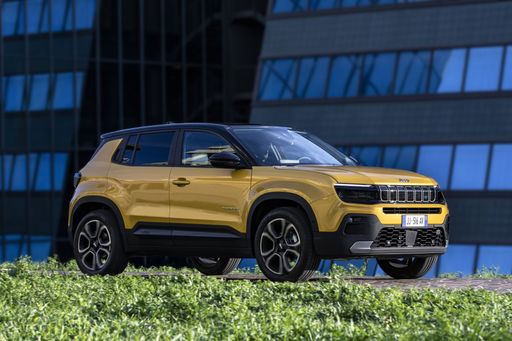 @ Jeep / Stellantis Media
@ Jeep / Stellantis Media
Jeep Avenger
Costs and Consumption
View detailed analysis
Engine and Performance
View detailed analysis
Dimensions and Body
View detailed analysis
Jeep Avenger
The Jeep Avenger shrinks Jeep's boxy, adventurous styling into a city-friendly electric crossover that looks just as at home on tight streets as it does on muddy weekend lanes. It's a savvy pick for drivers who want go-anywhere attitude without the truck-size ego — practical inside, lively around town and ready to tackle a bit of rough stuff when the mood strikes.
details @ Jeep / Stellantis Media
@ Jeep / Stellantis Media
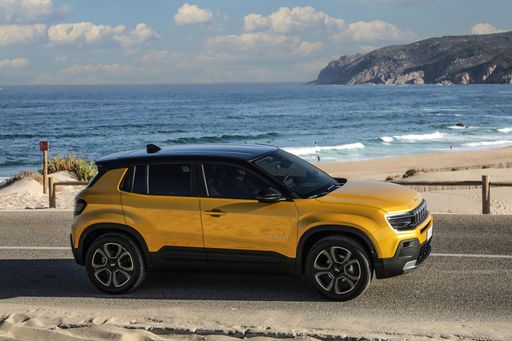 @ Jeep / Stellantis Media
@ Jeep / Stellantis Media
 @ Jeep / Stellantis Media
@ Jeep / Stellantis Media
 @ Jeep / Stellantis Media
@ Jeep / Stellantis Media
 @ Jeep / Stellantis Media
@ Jeep / Stellantis Media
Kia Ceed
The Kia Ceed is a sensible, stylish hatchback that gives buyers more than they'd expect for the money, blending practical space with crisp, modern looks. It drives with measured confidence and comes loaded with user-friendly kit, so you can enjoy daily life behind the wheel without breaking into a sweat.
details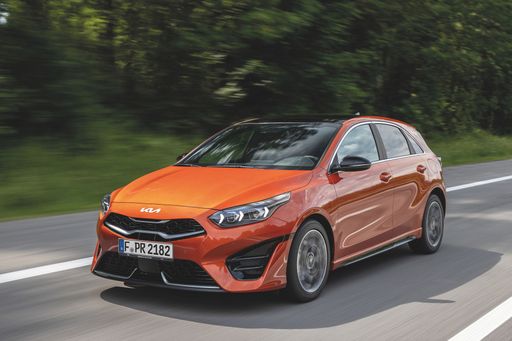 @ Kia Corporation
@ Kia Corporation
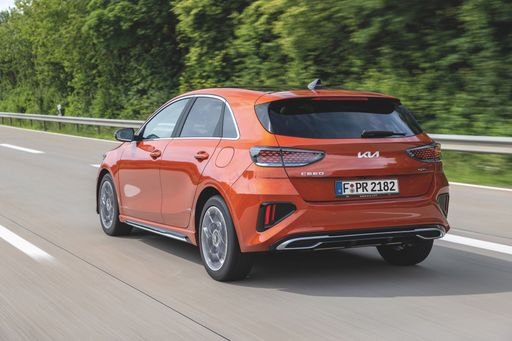 @ Kia Corporation
@ Kia Corporation
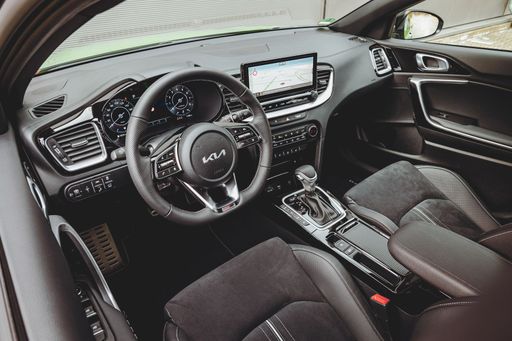 @ Kia Corporation
@ Kia Corporation
 @ Jeep / Stellantis Media
@ Jeep / Stellantis Media
|
 @ Kia Corporation
@ Kia Corporation
|
|
|
|
Costs and Consumption |
|
|---|---|
|
Price
21900 - 36900 £
|
Price
23500 - 26300 £
|
|
Consumption L/100km
4.9 - 5.7 L
|
Consumption L/100km
6 - 6.4 L
|
|
Consumption kWh/100km
15.50 kWh
|
Consumption kWh/100km
-
|
|
Electric Range
400 km
|
Electric Range
-
|
|
Battery Capacity
51 kWh
|
Battery Capacity
-
|
|
co2
0 - 129 g/km
|
co2
137 - 146 g/km
|
|
Fuel tank capacity
44 L
|
Fuel tank capacity
50 L
|
Dimensions and Body |
|
|---|---|
|
Body Type
SUV
|
Body Type
Hatchback
|
|
Seats
5
|
Seats
5
|
|
Doors
5
|
Doors
5
|
|
Curb weight
1180 - 1520 kg
|
Curb weight
1298 - 1372 kg
|
|
Trunk capacity
325 - 380 L
|
Trunk capacity
357 - 395 L
|
|
Length
4084 - 4088 mm
|
Length
4315 mm
|
|
Width
1776 mm
|
Width
1800 mm
|
|
Height
1527 - 1541 mm
|
Height
1447 mm
|
|
Max trunk capacity
1218 - 1277 L
|
Max trunk capacity
1253 - 1291 L
|
|
Payload
494 - 502 kg
|
Payload
478 - 490 kg
|
Engine and Performance |
|
|---|---|
|
Engine Type
Electric, Petrol, Petrol MHEV
|
Engine Type
Petrol, Petrol MHEV
|
|
Transmission
Automatic, Manuel
|
Transmission
Manuel, Automatic
|
|
Transmission Detail
Reduction Gearbox, Manual Gearbox, Dual-Clutch Automatic
|
Transmission Detail
Manual Gearbox, Dual-Clutch Automatic
|
|
Drive Type
Front-Wheel Drive, All-Wheel Drive
|
Drive Type
Front-Wheel Drive
|
|
Power HP
100 - 156 HP
|
Power HP
100 - 140 HP
|
|
Acceleration 0-100km/h
9 - 10.6 s
|
Acceleration 0-100km/h
9.5 - 13.2 s
|
|
Max Speed
150 - 194 km/h
|
Max Speed
178 - 197 km/h
|
|
Torque
205 - 260 Nm
|
Torque
172 - 253 Nm
|
|
Number of Cylinders
3
|
Number of Cylinders
3 - 4
|
|
Power kW
74 - 115 kW
|
Power kW
74 - 103 kW
|
|
Engine capacity
1199 cm3
|
Engine capacity
998 - 1482 cm3
|
General |
|
|---|---|
|
Model Year
2023 - 2025
|
Model Year
2024
|
|
CO2 Efficiency Class
A, D, C
|
CO2 Efficiency Class
E
|
|
Brand
Jeep
|
Brand
Kia
|
What drivetrain options does the Jeep Avenger have?
Available configurations include Front-Wheel Drive or All-Wheel Drive.
The prices and data displayed are estimates based on German list prices and may vary by country. This information is not legally binding.
